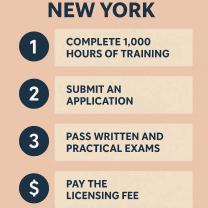What is a typical day like for a lawyer?
A typical day for a lawyer can vary significantly based on factors such as their practice area, the type of legal setting they work in (e.g., law firm, government agency, corporate legal department), and the stage of their cases. Here's an overview of what a typical day might look like for a lawyer:
1. Morning Routine:
- Arrival: Lawyers often start their day early, arriving at the office between 8:00 AM and 9:00 AM.
- Reviewing Schedule: Begin the day by reviewing the day's schedule, including appointments, court appearances, and deadlines.
2. Administrative Tasks:
- Email Management: Lawyers begin by checking and responding to emails, addressing urgent matters, and prioritizing tasks for the day.
- Calendar Updates: Ensure that the calendar is up-to-date with scheduled meetings, court appearances, and deadlines.
3. Legal Research and Case Preparation:
- Reviewing Cases: Lawyers spend time reviewing the details of ongoing cases, including relevant documents, evidence, and legal precedents.
- Legal Research: Conduct research on specific legal issues, statutes, and case law to strengthen their arguments and strategies.
4. Client Meetings:
- Scheduled Appointments: Lawyers may have meetings with clients to discuss case updates, provide legal advice, or gather additional information.
- Phone Consultations: Conduct phone consultations with clients who are unable to meet in person.
5. Drafting Legal Documents:
- Document Preparation: Drafting legal documents, such as contracts, pleadings, motions, and briefs.
- Editing and Review: Reviewing and editing drafts to ensure accuracy and adherence to legal standards.
6. Court Appearances:
- Attending Hearings: Lawyers involved in litigation may have court appearances, including hearings, motions, or trials.
- Client Representation: Representing clients in court, presenting legal arguments, and cross-examining witnesses.
7. Negotiations and Settlements:
- Negotiation Sessions: Engaging in negotiations with opposing counsel to reach settlements or resolve disputes outside of court.
- Drafting Settlement Agreements: Preparing settlement agreements if an agreement is reached.
8. Administrative and Document Management:
- Billing and Invoicing: Recording billable hours, preparing invoices for clients, and managing financial aspects of cases.
- Document Organization: Managing case files, ensuring documents are properly organized and accessible.
9. Team Collaboration:
- Meetings with Colleagues: Collaborating with colleagues to discuss case strategies, share insights, and seek advice.
- Supervision (for Senior Lawyers): Senior lawyers may spend time supervising and mentoring junior associates or legal support staff.
10. Lunch Break:
- Break for Lunch: Lawyers take a break for lunch, which can be an opportunity to relax, socialize with colleagues, or attend to personal tasks.
11. Client Follow-ups:
- Client Updates: Follow up with clients to provide updates on case progress, address concerns, and answer any questions.
12. Afternoon Tasks:
- Continued Legal Work: Lawyers continue working on ongoing tasks, which may include legal research, document drafting, and client communications.
- Preparation for Tomorrow: Plan and prioritize tasks for the following day.
13. Evening Hours (if necessary):
- Extended Work: Depending on workload and deadlines, lawyers may work into the evening, especially during critical phases of a case or when approaching court deadlines.
14. Networking and Professional Development:
- Events and Networking: Some lawyers attend legal events, networking functions, or continuing legal education (CLE) courses in the evening to build professional connections.
15. Evening Review and Planning:
- Reviewing Day's Work: Reflect on the tasks accomplished during the day and ensure everything is in order.
- Planning for Tomorrow: Plan and prioritize tasks for the next day.
It's important to note that the daily routine of a lawyer is dynamic and can be influenced by unexpected developments, client emergencies, and the demands of specific cases. Additionally, lawyers often need to balance their workload to manage multiple cases simultaneously. Adaptability and effective time management are crucial skills for success in the legal profession.
A day in the legal world: What is a typical day like for a lawyer?
There is no such thing as a typical day for a lawyer. The daily routine of a lawyer can vary greatly depending on their practice area, experience level, and the type of firm they work for. However, there are some common tasks and responsibilities that most lawyers engage in on a daily basis.
Overview of the routine and responsibilities characterizing a lawyer's typical workday
Here is a general overview of the routine and responsibilities characterizing a lawyer's typical workday:
- Morning: Lawyers typically start their day by checking their email and voicemail. They may also meet with clients to discuss their cases or research the law.
- Afternoon: Lawyers may spend the afternoon drafting legal documents, negotiating with opposing counsel, or preparing for trial.
- Evening: Lawyers may continue working on their cases in the evenings, or they may attend industry events or network with other professionals.
Here are some specific examples of tasks and responsibilities that lawyers may engage in on a daily basis:
- Meet with clients to discuss their legal needs and develop legal strategies.
- Research the law to determine the best course of action for their clients.
- Draft legal documents, such as contracts, pleadings, and briefs.
- Negotiate with opposing counsel to resolve cases without going to trial.
- Represent clients in court during trials and hearings.
- Manage their caseload effectively to ensure that all of their clients' needs are being met.
- Develop and maintain relationships with other professionals, such as judges, prosecutors, and other attorneys.
- Keep up with changes in the law by reading legal journals and attending continuing education courses.
- Market and develop their practice by networking with potential clients and attending industry events.
Insights into the challenges and rewards of a legal profession on a daily basis
The legal profession can be both challenging and rewarding. Some of the challenges that lawyers face on a daily basis include:
- Long hours: Lawyers often work long hours, especially when they are preparing for trial or working on a deadline.
- Stressful environment: Law can be a stressful profession, especially when lawyers are dealing with high-stakes cases.
- Complex and ever-changing law: Lawyers need to be able to keep up with the latest changes in the law in order to provide the best possible representation to their clients.
Despite the challenges, there are also many rewards to a career in law. Some of the rewards that lawyers enjoy on a daily basis include:
- Helping their clients achieve their goals: Lawyers are able to use their skills and knowledge to help their clients achieve their goals, whether it is winning a lawsuit, getting a divorce, or starting a business.
- Making a difference in the world: Lawyers can play an important role in promoting justice and fairness in society.
- Intellectual stimulation: The law is a complex and challenging field that requires lawyers to constantly think critically and solve problems.
- Financial rewards: Lawyers are among the highest-paid professionals in the world.
Overall, the legal profession can be both challenging and rewarding. It is important to weigh the pros and cons carefully before deciding whether or not to pursue a career in law.













